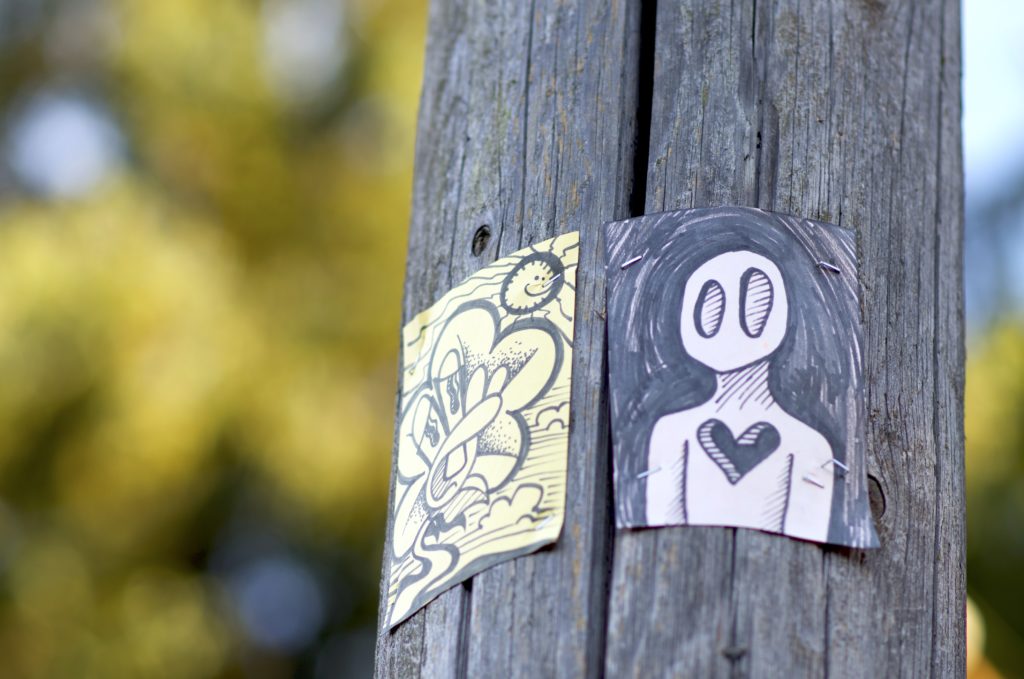
I want to take what remaining energy I have after an amazing week to put some thoughts on paper – to talk about how the gathering of new friends has put some recent events in my life into perspective. This isn’t a review of the talks, how great the food was, and what new thing I learned about. Maybe that will come later. For now, I want to reflect the honesty I saw on display with a few things that have been happening in my life as of late that I have not talked about.
I was impressed by how many presentations challenged the status quo. Speakers asked us to not just think and talk more about these hard things (working independently, relying on others, racism, sexism) but to actually do something about it – making an effort in hiring, getting involved in what is happening locally, calling out assholes, and whatever else gets your ass out of a chair.
At XOXO I was able to see people I admire stand in front of a huge group of people – total strangers – and tell the most honest and open truth there is: one full of vulnerability and openness that is both overwhelming and welcome.
I wanted to do something to echo the outpouring of humanity I saw at XOXO. So, here are a few things that are on my mind at the moment. This is the first time I’ve written about any of this. I see my time at XOXO, the sharing of information, the connections being made between people, and the bravery in talking about how things really are – even when it’s not glamorous – to be a call-to-action.
Instead of ignoring injustices and being comfortable we need to be comfortable with being uncomfortable and stand up for what we believe in. To keep moving forward. Writing this is extremely uncomfortable. I freely admit it is not a giant leap, but a small step. Writing this down and sharing it holds me to figuring these things out, to taking action.
Enjoy, or whatever the appropriate reaction to this is.
The Reflection
Earlier this year I had a small blush with Gamergate. Nothing personally threatening, but rather quite sad. It’s not resolved in my mind. I’m still not sure what to do.
I was reading Twitter one day when an author I admire made a reference to some GG’ers surprisingly making a positive comment about him in one of their forums. Out of curiosity I went to the forum to see what was being said. I was immediately struck with the headline of a thread. There would be a presentation on Gamergate hosted by an active GG’er at a local convention near my home.
I was like, “What the hell!? Who is actually giving someone in this group a literal stage to talk about their shitty tribe?” So I did what any normal human would do: I Googled the crap out of this person to learn as much as I can about them. Totally not creepy, right?
What I found was a local young dude with a similar background as I, but 10 years apart: same neighborhoods, same school, same college, male, white, young and lonely. I found an old Twitter account, where he gushed about his girlfriend at the time, family life, and his emotions and feelings. It was beautiful and all too familiar.
I thought, “Here’s a local young man with a similar background who was suckered into the fold of GG and their ideology. Why didn’t I? What could I say to him? How could I reach out to him?” 1
I created an account in the forum, and reached out to him. I asked if we could meet to talk before his presentation, if I could better understand where he was coming from, and what he was trying to do.
We met in person and chatted for an hour or so. He genuinely seem concerned with video game journalism and “censorship” of imported games. I asked him why use the Gamergate banner? Why identify with a group that has a terrible reputation? His response was that it wouldn’t matter. That the Gamergate he was part of was not the harassing part.
He was very dismissive of any arguments I brought up. It was frustrating. I kept my patience. I paid the fee to go to the conference and see his presentation. It was focused on the history of Gamergate (smoothing over all the false accusations and harassment) and restated the same rhetoric about bias, censorship, and journalism. No citations, no research, just more of the same Gamergate rhetoric.
All I heard was a scared lonely young man who found a sliver of power and self-worth in a group.
I reached out. I tried to understand. I am still thinking about this young person. I don’t have a clue what to do, if anything. I want him to be successful and happy. I worry that he won’t be.
The Parents
My in-laws recently bought a handgun. My wife and I are against guns. 2 My wife and I expressed this to her parents months ago. We did not want a gun around our children when they visited or stayed the night. They assured us they would not get a gun.
They got a gun. Months later we found out.
Two of the most compassionate, helpful, and loving people have been driven by fear to carrying a gun for “protection.” Since their retirement they rarely leave the house, they do not meet new people, they do not explore. Instead they watch 24/7 news that has led them to believe that ISIL is going to attack our small town, and that the terrorists are among us.
My father-in-law has taken to wearing camouflage now. In the past 15 years he has never talked about his experiences in the military, now he is “prepared.” He is now talking about ‘them’ coming to get ‘us.’ He’s supporting Trump. He carries a gun to the grocery store: a Dierbergs that’s literally across the street from where they raised two daughters and their grandchildren.
He says he has a gun in case someone breaks in or he needs to act. It’s in a locked safe, unloaded, and he, frankly, has terrible vision. He’s more likely to shoot himself or a loved one accidentally than be the good guy with a gun.
They lied to us. Their actions are worrying us. They have not seen their grandchildren since that day months ago.

WTF does this have to do with XOXO?
I don’t know how to fix these things. My heart wants to make things right. Whatever that means in each. Maybe I can’t. Maybe I shouldn’t. I just can’t fucking figure it out. It’s wearing on me.
I have not lost as much as others. I have not struggled for as long. I’m aware of my fortune and privilege.
When I was young we were on food stamps. I was embarrassed at where I grew up. 3 My poor grades. Old, unglamorous jobs.
Then I get the chance to go to this amazing and scary event. Where I’ll be meeting people who I find to be inspiring. I thought maybe they’d have it figured out.
The individuals creating and sharing in this space – each with a new sense of honesty, intimacy and connectedness. They all came together and I was fortunate enough to be among them: my heroes.
Being at XOXO was cathartic. It made me feel like I was not the only one struggling with these types of issues. Hearing from other people – the humans of the Internet – working to make things better. That we’ve collectively figured that much out.
XOXO, the people and their stories give me hope. We are not alone. The world is getting better. We are in this together. We are doing good. It is making a difference. It is important. It is hard.
The world is getting more inclusive. It happens frustratingly slowly, but it is happening. We are on the right side of history – I have no doubt now.
We will be ok.
More reflections from XOXO:
- http://happycrosstester.com/xoxo2016/
- http://tinyletter.com/wowsignal/letters/xoxo-from-xoxo
- http://www.courtneyp.com/2016/09/xoxo-festival-thoughts/
- https://ashleighpenrod.com/2016/09/15/xox-woah-the-best-headline-for-the-best-fest/
- http://www.lastwordonnothing.com/2016/09/19/the-financially-damaging-myth-of-no-effort/
- http://roughdreamer.blogspot.com/2016/09/my-xoxo.html
- http://craftindustryalliance.org/conference-report-xoxo/
- https://medium.com/@hupfen/hugs-and-kisses-b39e25528867#.awihw835o
- https://15minutes.inthemorni.ng/starving-artists-b84b588665ad#.tck17pjgm
- http://brokencloudpress.com/xoxo/
- http://nadreck.me/2016/09/xoxo-xoxo/
- http://andrewwhipple.com/blog/2016/09/16/xoxo-big-important
- https://medium.com/@doug_hanke/obligatory-xoxo-retrospective-ffd7fe2e3dc8#.ompzqyvyn
- https://medium.com/crooked-boxes-shaky-arrows/eight-short-ish-thoughts-about-xoxo-2016-77b8c75c3b98#.geula056k
- http://dresramblings.com/2016/10/19/thoughts-and-lessons-from-xoxo-2016/
- http://www.eod.com/blog/2016/09/the-last-epiphany/
- https://medium.com/@joshmillard/xoxo-2016-e5e51e019d79#.10tb0p484
- http://tantek.com/2016/257/b1/xoxofest-overviews-personal-perspectives
- http://www.theverge.com/2016/9/12/12884834/xoxo-fest-2016-recap